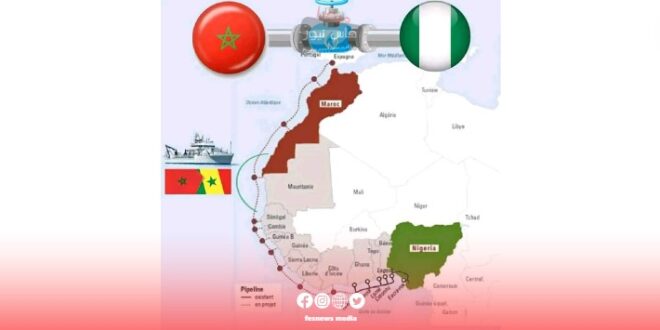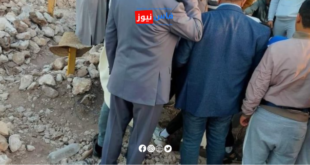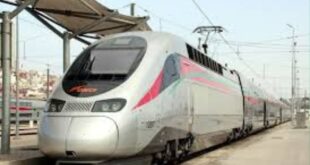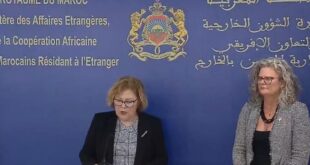With Etfat announcing the start of onshore survey activities for the massive gas pipeline project between Nigeria and Morocco, all eyes are on this strategic move that promises to stimulate economic development and enhance regional cooperation. This announcement follows the inaugural meeting held in Rabat, which witnessed the participation of the National Bureau of Hydrocarbons and Minerals and the Nigerian National Petroleum Corporation (NNPC), reflecting the shared commitment between the two countries towards realizing this ambitious project.
The project, which extends 6,000 km, will cross 13 African countries along the Atlantic coast and supply natural gas to inland countries such as Niger, Burkina Faso and Mali. This pipeline is expected to contribute to reducing dependence on fossil fuels and encouraging the transition towards renewable energy sources, in accordance with Morocco’s national goals of achieving a low-carbon energy system and diversifying the energy mix.
Construction is expected to begin in 2024, and the project is part of the “Decade Gas” plan launched by Nigerian President Muhammadu Buhari in 2020, which aims to boost gas production and export in Nigeria. On the Moroccan side, this project is part of the South-South cooperation supported by King Mohammed VI, and is expected to create a competitive regional energy market and benefit all the peoples and countries of West Africa.
The Nigeria-Morocco gas pipeline project is an example of the great potential of regional cooperation in achieving sustainable development and economic integration. As the initial land survey work progresses, the hope remains that this project will contribute to enhancing prosperity and stability in the region.
From: Fez News website
 فاس نيوز ميديا جريدة الكترونية جهوية تعنى بشؤون و أخبار جهة فاس مكناس – متجددة على مدار الساعة
فاس نيوز ميديا جريدة الكترونية جهوية تعنى بشؤون و أخبار جهة فاس مكناس – متجددة على مدار الساعة













